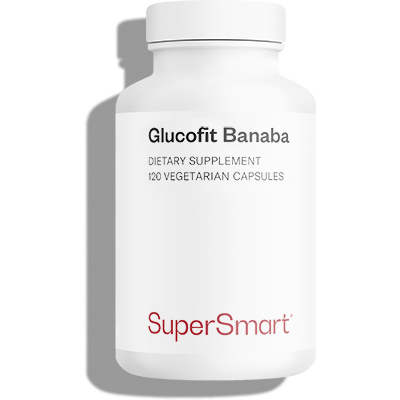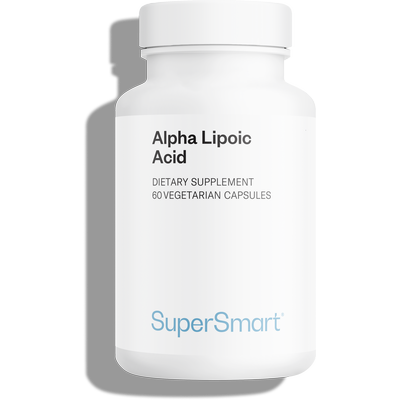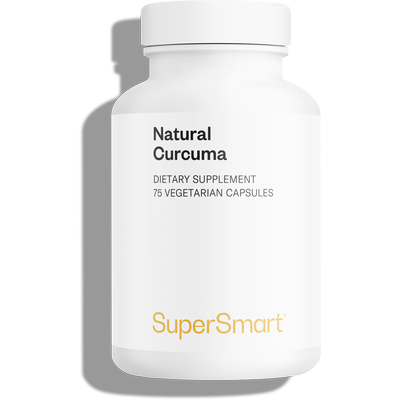13-11-2017
Act now to fight diabetes
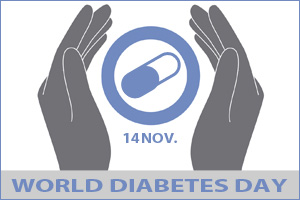 November 14th marks World Diabetes Day1, an annual event designed to raise awareness of a disease which today affects more than 400 million people worldwide2. Incidence has been growing inexorably over the past few years and could yet double within the next decade, according to estimates from the International Diabetes Federation3. In the light of these worrying predictions, scientists across the globe are working to develop sustainable treatments and preventive solutions. According to a clinical study published recently in the journal High Blood Pressure & Cardiovascular Prevention4, promising approaches to reducing the risk of type 2 diabetes include regular exercise, adopting a healthy, balanced diet and taking certain nutritional supplements.
November 14th marks World Diabetes Day1, an annual event designed to raise awareness of a disease which today affects more than 400 million people worldwide2. Incidence has been growing inexorably over the past few years and could yet double within the next decade, according to estimates from the International Diabetes Federation3. In the light of these worrying predictions, scientists across the globe are working to develop sustainable treatments and preventive solutions. According to a clinical study published recently in the journal High Blood Pressure & Cardiovascular Prevention4, promising approaches to reducing the risk of type 2 diabetes include regular exercise, adopting a healthy, balanced diet and taking certain nutritional supplements.Three approaches to preventing type 2 diabetes
In their efforts to identify methods of preventing this type of diabetes, the Italian researchers behind this study focused on the disease’s causes and risk factors.
Examining the causes of type 2 diabetes
Type 2 diabetes is caused by poor blood sugar control, usually accompanied by insulin resistance. Insulin is a hormone which enables the body’s cells to capture glucose for use or storage. In insulin resistance, cells are less sensitive to this hormone. As the insulin is unable to carry out its blood glucose-lowering role, glucose accumulates in the blood, resulting in excess blood sugar, a chronic hyperglycaemic situation characteristic of diabetes.
Identification of several risk factors
Research suggests that the insulin resistance seen in type 2 diabetes is caused by a combination of factors, three of which were of interest to these researchers:
-
- bad eating habits, and more specifically, overconsumption of sugary foods which encourages hyperglycaemia;
- sedentary lifestyles, increasingly common in recent years, which upset the body’s overall metabolism;
- metabolic disorders, including those affecting control of glycaemia (blood sugar levels).
The researchers identified three potential ways of preventing these different risk factors:
-
- adopting a healthy, balanced diet, in particular, restricting consumption of high-sugar foods;
- taking regular exercise, to avoid the kind of sedentary lifestyle conducive to many diseases including diabetes;
- using nutritional supplements that have blood glucose- and blood lipid-lowering effects.
To develop and confirm their hypotheses, the researchers conducted a 10-week, randomised, double-blind study, involving 40 volunteers with problematic glycaemia. The study was carried out in two stages:
1st stage: support in correcting bad habits
For the first two weeks, participants were advised on how to improve their lifestyles and prevent risk factors for diabetes such as bad eating habits and inactivity. This was backed up by implementation of:
-
- a Mediterranean diet, in which intake of sugary foods was reduced and that of fruit, vegetables, whole grains etc was prioritised
- regular physical activity.
In addition to the above, for the following eight weeks participants were either given a placebo or a nutritional supplement containing a blend of several active principles, chosen for their beneficial effects on glucose and lipid metabolism.
Promising results for preventing diabetes
Before, during and after the 10-week trial, the researchers recorded various parameters in order to assess the effects of the support and supplementation intervention. They measured anthropometric parameters such as weight, body mass index and waist circumference, as well as levels of total cholesterol, ‘good’ HDL-cholesterol, and ‘bad’ LDL-cholesterol, triglycerides, fasting plasma glucose, fasting insulin, serum uric acid, and hsCRP (an inflammation marker). They also recorded blood pressure, heart rate and insulin resistance using the HOMA-IR (Homeostasis Model Assessment of Insulin Resistance) index. As a result of these various analyses, several beneficial effects were identified.
Benefits of dietary and exercise advice
Firstly, there was an improvement between the start and end of the study in all participants’ fasting glycaemia. In addition, no exacerbation of parameters such as blood pressure, levels of total and LDL-cholesterol, and hsCRP was observed. Together, these results suggest that dietary and exercise support could have positive effects in preventing diseases such as diabetes.
Efficacy of nutritional supplementation
Positive results were also observed from the nutritional supplementation. Compared with those given a placebo, participants supplemented with the active principles demonstrated:
-
- improved fasting insulin levels, indicating enhanced blood glucose-lowering activity;
- an improved HOMA-IR index, suggesting a lower risk of diabetes and less insulin-resistance;
- improved levels of HDL-cholesterol and triglycerides, signifying a reduced risk of cardiovascular disease.
This clinical study has produced scientific evidence for three promising approaches to the prevention of diseases such as type 2 diabetes. It seems that, alongside a healthy lifestyle, appropriate supplementation may offer additional benefits. The active principles selected for their diabetes-fighting potential in this trial included berberine extracted from plants from the Berberis genus, corosolic acid found in banaba (Lagerstroemia speciosa) leaves, chromium picolinate, alpha-lipoic acid, folic acid (vitamin B9) and curcumin from the plant Curcuma longa.
> Sources :
1. Fédération française des diabétiques, 14 novembre 2017 : Journée Mondiale du diabète, www.federationdesdiabetiques.org
2. Organisation Mondiale de la Santé (OMS), Diabète, Aide-mémoire N°312, Novembre 2017
3. International Diabetes Federation, IDF Diabetes Atlas. 4. Brussels: International Diabetes Federation, 2009.
4. Arrigo Francesco Giuseppe Cicero, et al., Nutraceutical Effects on Glucose and Lipid Metabolism in Patients with Impaired Fasting Glucose: A Pilot, Double-Blind, Placebo-Controlled, Randomized Clinical Trial on a Combined Product, High Blood Pressure & Cardiovascular Prevention, 2017; 24(3): 283–288.
Order the nutrients mentioned in this article
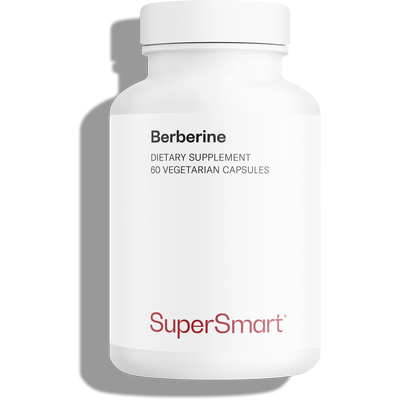
Berberine HCL: natural extract of Berberis vulgaris for cardiovascular health
www.supersmart.com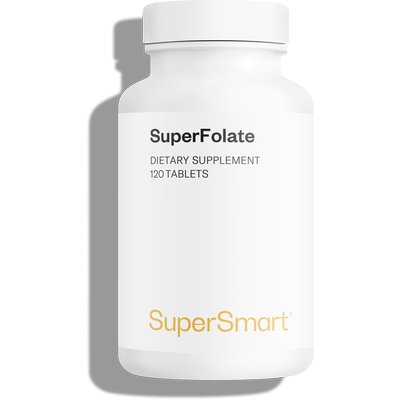
A new generation of folic acid recognised as safe and effective by the EFSA and FDA
www.supersmart.com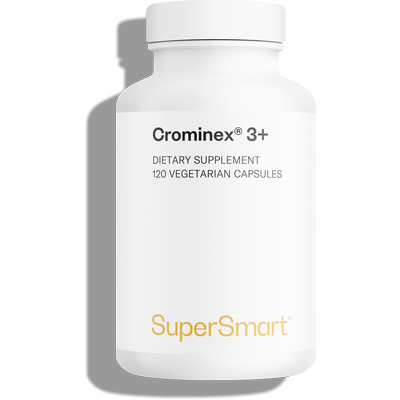
Optimal form of chromium enriched with fulvic acid and extract of amla
www.supersmart.comFurther reading
10-10-2016
In India, turmeric is used to treat a wide variety of ailments including gastrointestinal problems, inflammation, headaches, infections and colds. It is turmeric’s curcuminoid content,...
Read more06-07-2019
If you haven’t yet come across the medicinal plant gymnema (Gymnema sylvestris) , you may be surprised by just how many health benefits it offers....
Read more23-04-2019
How much do you know about non-alcoholic hepatic steatosis? Are you aware, for example, that it is considered one of the most common liver diseases...
Read more© 1997-2026 Fondation pour le Libre Choix
All rights reserved
All rights reserved
Free
Thank you for visiting our site. Before you go
REGISTER WITHClub SuperSmart
And take advantage
of exclusive benefits:
of exclusive benefits:
- Free: our weekly science-based newsletter "Nutranews"
- Special offers for club members only



